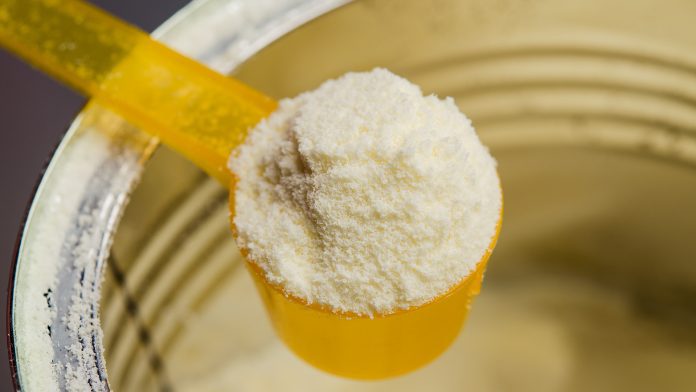
Most health and nutrition claims on infant formula products seem to be backed by little or no high-quality scientific evidence.
An international study published by The BMJ has revealed that many health and nutrition claims plastered on infant formula appear to be backed by little or no high-quality data. These common claims include that the products benefit brain development, immunity, and growth in young infants.
The marketing tactics of infant formula brands have long been questioned, with The Lancet famously campaigning against formula companies and their exploitative practices. New evidence by The BMJ illuminates how the health claims by infant formula companies are not backed up with sufficient data.
Is infant formula improving the development of babies?
The researchers reviewed health and nutrition claims for infant formula products in a group of high, middle, and low-income countries and evaluated the validity of the evidence used to support these claims.
They searched websites of infant formula companies, examined the packaging of formula products, and documented claims made about products marketed towards healthy, full-term babies in 15 countries, which included Australia, Germany, Norway, Spain and the UK in 2020-22. The analysis consisted of all the health and nutrition claims linked to the product or an ingredient that has a potentially beneficial effect on the normal functioning, growth and development, or health of consumers.
They collected the number and type of claims for each product ingredient, then assessed the level and quality of evidence that support these claims using two widely used risk of bias tools.
Over 700 formula products had two health claims on average
The team identified 757 infant formula products; each had an average of two health claims and 31 types of claims across all products.
Of 608 products with one or more claims, the most common claim types were “helps/supports the development of brain and/or eyes and/or nervous system” (53% of products, 13 ingredients), “strengthens/supports a healthy immune system” (39% of products, 12 ingredients), and “helps/supports growth and development” (37% of products, 20 ingredients).
Overall, 41 groups of ingredients were identified as having one or more claims linked with them, but many claims were made without a reference to which ingredient supported this (50% of products).
The most common groups of ingredients mentioned in the claims were long-chain polyunsaturated fatty acids (46% of products, nine different claims); prebiotics, probiotics, or synbiotics (37% of products, 19 claims); and hydrolysed protein (20% of products, nine claims).
Furthermore, 74% of products making specific health claims did not cite any scientific reference. For the other 26% of products that did note a scientific reference. When references were provided, 56% referred to the findings of clinical trials and the rest were reviews, opinion pieces, or other types of research, including animal studies. Only 14% of references were to a prospectively registered clinical trial, and 90% of claims that cited registered clinical trials carried a high risk of bias.
More shocking was that 88% of registered trials had authors who either received formula industry funding or were affiliated with the industry.
These are observational findings, and some limitations, such as inconsistencies in data collection, were reported. However, the study included evidence from a wide range of countries, enabling the team to document the relationship between health and nutrition claims and ingredients in infant formula.
The researchers concluded: “These findings support calls for a revised regulatory framework for breast milk substitutes to better protect consumers and avoid the harms associated with aggressive marketing of such products.”








